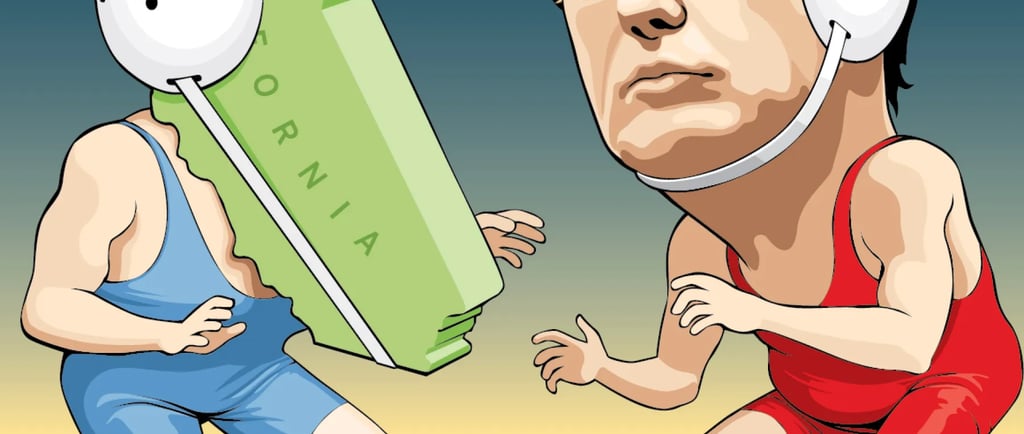(CA)State vs. (Trump)Federal: A Constitutional Crisis in the Making?
Following the deployment of the National Guard against the wishes of state and local leaders, a critical question emerges: what happens when a state and the federal government are on a collision course?
NEWSLA RIOTSTRUMP
Thomas Blackburn Jr
6/8/20252 min read


As tensions simmer in Los Angeles following the deployment of the National Guard against the wishes of state and local leaders, a critical question emerges: what happens when a state and the federal government are on a collision course?
An escalation of the current standoff could push the United States into a constitutional crisis, testing the very foundations of its federalist system.
At the heart of the conflict lies the delicate balance of power between the states and the federal government. While a governor typically commands their state's National Guard, federal law, specifically the Insurrection Act of 1807, grants the president the authority to federalize these troops and deploy them domestically, even against a governor's will, to enforce federal laws or suppress an insurrection.
Should the situation escalate, one of the first and most chaotic consequences would be a breakdown in the chain of command for law enforcement. State and local police, who answer to the governor and mayor, could find themselves in a tense and confusing standoff with federalized National Guard troops and federal agents, who answer to the president. This could lead to conflicting orders, jurisdictional disputes, and a paralysis of public safety operations, leaving citizens in a dangerous limbo.
Historically, such confrontations have been rare but profound. The most notable example is the 1957 Little Rock Crisis, when President Dwight D. Eisenhower federalized the Arkansas National Guard to enforce the desegregation of Central High School, directly opposing Governor Orval Faubus. The federal government's authority ultimately prevailed, but the event left deep scars.
An escalation in today's hyper-partisan environment could be far more volatile. Governor Gavin Newsom could challenge the president's deployment in federal court, arguing it's an unconstitutional overreach of power. This would ignite a protracted legal battle that could reach the Supreme Court, forcing the judiciary to make a landmark ruling on the limits of presidential authority and states' rights.
Politically, the ramifications would be immediate and severe. The nation would likely see a deep political schism, with states aligning behind either the federal government or California. This could manifest in legislative battles in Congress, calls for impeachment, and widespread civil unrest far beyond the borders of Los Angeles, as citizens take sides in a deeply polarized conflict.
The most concerning outcome is the potential for violence. A direct confrontation between armed state and federal forces, however unlikely, represents a worst-case scenario that would signal a fundamental breakdown of the American republic. More probable would be an increase in clashes between ideologically opposed civilian groups, further straining the social fabric.
Ultimately, an escalation of the conflict between California and the Trump administration would be a perilous journey into uncharted territory. It would force a national reckoning with fundamental questions of power, authority, and the meaning of the union, with the potential to reshape the relationship between the states and the federal government for generations to come.